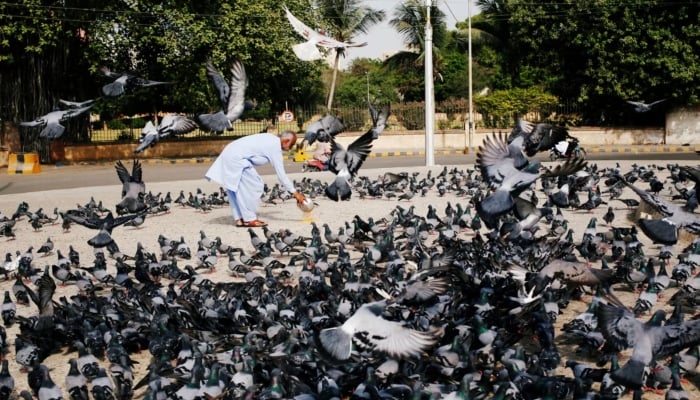Karachi sees alarming rise in pigeon-linked lung disease
15 to 25 cases are now being reported weekly, up from just one or two per week a decade ago
May 02, 2025

KARACHI: An alarming surge in cases of a rare lung condition linked to pigeons, known as Bird Fancier’s Lung (BFL), is being reported across Karachi, with women and elderly individuals most commonly affected.
The illness, a form of Hypersensitivity Pneumonitis (HP), is caused by repeated exposure to airborne particles from pigeon feathers and droppings.
Respiratory specialist Dr Muhammad Irfan told Geo News that 15 to 25 cases are now being reported weekly, up from just one or two per week a decade ago.
He said that most patients are unaware they are being exposed indoors, especially through unserviced air conditioners and open windows.
Bird feeding sites have sprung up across the city, exposing residents and caretakers to allergens released from flapping wings and dried droppings. These particles, just 1–3 microns in diameter, travel into homes and lodge deep in the lungs, triggering serious allergic reactions.
The illness starts with symptoms like persistent cough, shortness of breath, wheezing, and fatigue, often mistaken for exertion or a minor illness.
If left untreated, it can progress to irreversible lung scarring (interstitial lung disease or ILD) and, in severe cases, may require oxygen therapy or a lung transplant.
Currently, lung transplants are not available in Pakistan. Patients must travel abroad, to India, China, or the UAE.
While the condition is curable in early stages, avoiding exposure is key. Dr Irfan strongly advises the use of masks and gloves when handling birds, avoiding dry sweeping of cages or lofts, and installing filters or regularly servicing air conditioning systems.
While Civil Hospital officials confirm that multiple cases of respiratory distress are reported daily, they noted a lack of disease-specific classification.
Due to the disease’s severity, several countries, including Australia and Switzerland, have banned pigeon feeding in urban spaces.
Even the famous pigeon feeding site near the Holy Kaaba in Makkah has been removed due to public health concerns during past outbreaks of COVID-19 and MERS.
The government and public health bodies are being urged to launch awareness campaigns and regulate public bird-feeding areas to curb the spread of this underreported yet potentially life-threatening disease.











